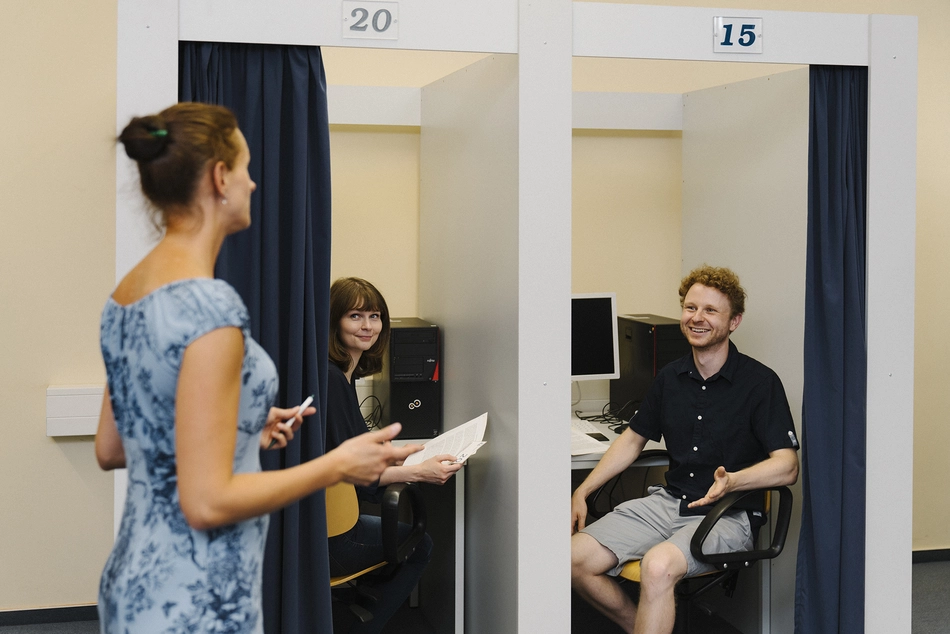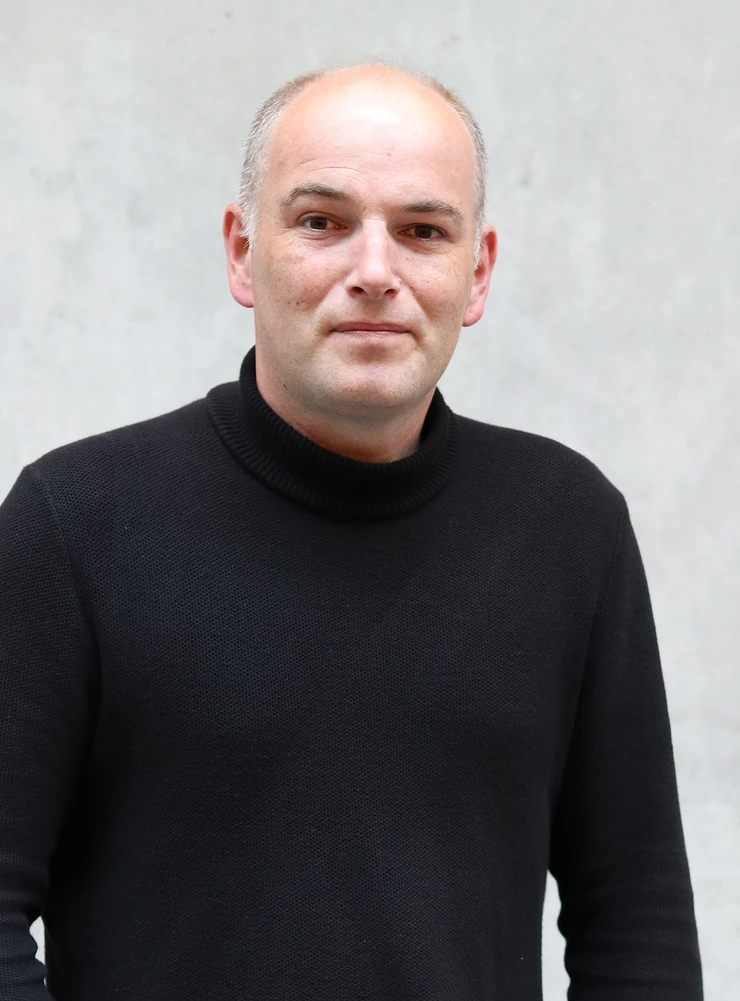How should one imagine such investigations, what exactly happens in the laboratory and what questions do the scientists work on here, for example?
Our studies are usually computer-supported, i.e. the participants answer questions or work on tasks on the computer. The questions can come from very different subject areas and range from current topics, such as how to deal with the corona pandemic, to fundamental questions, such as how to process information in different decision-making situations. Another area of research also deals with interactions between participants. The data obtained can then be used to test existing theories and develop new theories. A large part of the research is currently conducted online, which means that participants can take part in the surveys from home using their computer or smartphone.
And who carries out the research?
The investigations are carried out by the staff of various professorships and research groups from different faculties of the University of Erfurt. Some of the research is also carried out as part of empirical theses. By participating, students therefore also support their fellow students.
Do I have to have any previous knowledge as a test person?
No, previous knowledge is not required for participation in the examinations. All the information required to answer the questions or complete a task will be made available to the participants before or during the examination.
How or to whom can I get in touch if I want to participate?
Only two simple steps are required to participate: The first step is a non-binding registration in the ErfurtLab participation database. In the second step, all those in the participation database receive regular invitations by e-mail. This invitation is valid for a specific study and contains initial information about the study and specific dates on which participation is possible. To register, simply click on the desired date.
What actually happens with the results of the examination in the end - are they communicated to the test persons or are they published somewhere?
The ErfurtLab is committed to strengthening open science, i.e. we try to link all papers containing data from our laboratories on the laboratory's website. However, for reasons of data protection and as a result of anonymous data collection, it is not possible to assign individual participants directly to specific publications. As a rule, however, the instructions provided to participants during the study are published together with the results of a study. Each participant can therefore find out for himself or herself to which publication he or she has contributed with the decision.
For example, can students use the laboratory for their own research as part of their dissertations?
Yes, the ErfurtLab team supports students who collect their own data as part of their final thesis in recruiting participants and in all other questions relating to the organisation and implementation of their research.
Have you yourself ever participated in such an investigation as a test person and if so, what kind of experience was it?
During my studies I participated in numerous surveys and experiments. I was particularly fascinated by studies in which the cooperation and social interaction of individuals in economic decision-making situations was examined. That's certainly one of the reasons why I later did my doctorate on this topic and am still researching it today.


